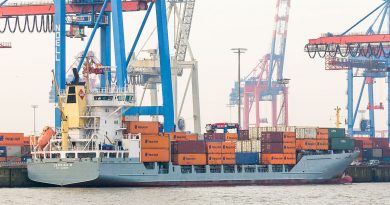Ethiopian Government Declares Humanitarian Ceasefire in Tigray
Chrissie Mones
Layout Editor
Ethiopian and Tigrayan leaders have agreed to a humanitarian ceasefire to halt the civil conflict that has raged in the country’s northern Tigray region for over a year. The United Nations and other international actors are hopeful that the cessation of fighting will allow for humanitarian aid to the region. Reuters reports that the ceasefire comes at a time when “more than 90 percent of the 5.5 million Tigrayans need food aid,” despite Ethiopian authorities affirming that aid deliveries have never been impeded.
According to Reuters, humanitarian convoys have been targeted while others have been unable to obtain permission to cross into the conflict zone. Numerous drivers contracted with UN humanitarian efforts have been arrested. The Ethiopian government asserts that any minimizations or delays in humanitarian aid to the region are a result of the Tigray People’s Liberation Front (TPLF) rebel group, reports Reuters.
This is not the first ceasefire that has been announced throughout the conflict. On June 28, 2021, after the TPLF regained control of Mekelle, the Ethiopian government unilaterally declared a truce to allow for desperately needed aid to be delivered to the region. Al Jazeera reports that the ceasefire was announced when farming season in the region was entering its peak. Still, fighting resumed shortly after this first ceasefire was announced.
Ethiopia’s announcement of another unilateral humanitarian ceasefire on March 24 was due to a mass exodus from Tigray into neighboring countries and other Ethiopian states, reports The New York Times. The provisional Tigrayan government accepted the truce under the condition that aid would be received “within a reasonable timeframe.”
The conflict between the Ethiopian government and the TPLF has been brewing for years. Since his election in 2018, Ethiopian Prime Minister Abiy Ahmed has been instituting significant political changes in Ethiopia, limiting the abilities of the TPLF which had been the dominant political party since 1991, reports The Washington Post. After months of ministerial and political disagreements between Abiy and the TPLF, the TPLF “defied the federal government” and held its own regional elections in September of 2020, according to the Council on Foreign Relations. Subsequently, Abiy declared a state of emergency and stationed troops in Tigray’s capital, Mekelle. To justify these actions, Abiy accused the TPLF of attacking and stealing military assets, reports the Council on Foreign Relations.
The two parties have been at war since November of 2020, with thousands of citizens dead and even more displaced, says The Guardian. The conflict has also harmed women and girls in the Tigray state and the neighboring states of Amhara and Afar. Instances of sexual violence and assault, perpetrated by both sides, have increased. BBC News reports that “[in] the first eight months of the war 2,200 cases were reported in Tigray and 940 in Amhara.” BBC News further reports that as part of the humanitarian efforts in the area, UNICEF clinical psychologists and doctors provide support for victims of rape and sexual trauma.
In addition to sexual violence, the conflict has also brought about thousands of displaced citizens and widespread famine, particularly in the Tigray region.
The UN and global leaders are skeptical that the humanitarian ceasefire will remain, reports The New York Times. Even if the truce is to hold, humanitarian workers face dangerous conditions in Ethiopia. According to the same New York Times, more than seven aid workers have been attacked and killed while delivering aid, with both sides responsible for perpetrating attacks.

